Civic Perspectives | Insight for the Pandemic
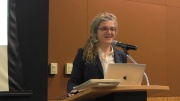
Centering feminism: Investigating marginalized women and potential empowerment
Lerna Ekmekcioglu, MIT’s McMillan-Stewart Associate Professor of History and the director of MIT’s Women’s and Gender Studies program, researches a more inclusive feminism.

U.S. HEALTHCARE SYSTEM
What has the pandemic revealed about the U.S. healthcare system — and what needs to change?
Seven MIT scholars see lessons and opportunities for U.S. healthcare
MIT SHASS MEDIA PUBLICATIONS
At-A-Glance | List of external media publications
Research-based insights, for policy and public understanding of the Covid-19 pandemic, from the MIT-SHASS academic community

MEDIA AND THE PANDEMIC
Professors Heather Hendershot and Marah Gubar discuss CNN/Sesame Street Town Halls for children on the pandemic, racism
"I'm interested in thinking about the town halls as media events and, more specifically, as political media events. Cable news is so polarized right now, and when you deal with kids and anything with political dimensions, it’s sort of inherently a hot potato situation."

THE MEANINGS OF MASKS
Venetian Masks | Jeffrey S. Ravel
Masks for Carnival — and for finessing an archaic political order: "By the eighteenth-century in Venice, people had grown accustomed to wearing masks in public perpetually, not for health reasons but for social and cultural ones. Furthermore, the Venetian state actually required its citizens and visitors to the Republic to don masks in many public spaces."
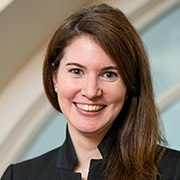
THE MEANINGS OF MASKS
Persona: Masks in the Graeco-Roman World | Stephanie Ann Frampton
"In Latin, one of the words for mask is persona, thought to have meant 'something through which sound passes' (per- 'through,” sono 'to make a sound')... Even in the time of Cicero, persona was already being used to describe the 'part' or 'character that one sustains in the world' — in other words, the role or roles we play in society."

THE MEANING OF MASKS
The Masks of Empire, Art, Politics, and War | Catherine Clark
"Ultimately, history reminds us that masks can produce meaning whether they sit on our faces or our kitchen tables."
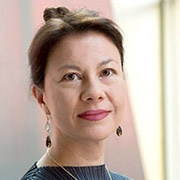
THE MEANINGS OF MASKS
The Mask as Public Spiritedness - 公德心
Emma Teng | History
"Norms in East Asian countries support the notion that 'doing something for the community good is good for me also.' It would be unthinkable to discuss sacrificing older people to the pandemic using a cost-benefit analysis. It is also considered a social responsibility to do one’s part in controlling the pandemic to ensure that schools remain open for the younger generation."
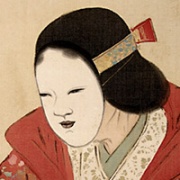
THE MEANINGS OF MASKS
The expressive power of masks | Sara Brown
MIT professor and theater designer on masks as archetypes, protection, the performance of self, and care for others
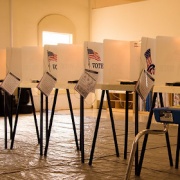
ELECTION 2020 | VOTING BY MAIL
13 July 2020
Ten recommendations for conducting a healthy and trustworthy 2020 election
In Lawfare, ten recommendations from MIT election expert Charles Stewart III and Nathaniel Persily of Stanford Law. "The Covid-19 pandemic...requires an extraordinary commitment at all levels of government, and from the media, political parties, campaigns and voters. The country can meet this challenge if Americans begin to prepare immediately."

CIVIC PERSPECTIVES
3 Questions: Heather Hendershot on media coverage of the pandemic
MIT comparative media expert discusses the stark differences in pandemic reporting and coverage across US media platforms.

THE MEANINGS OF MASKS
The mask is a badge of honor | Eric Klopfer
Comparative Media Studies
"In this pandemic era, what a mask really says is, ‘I care about YOU.’ The mask indicates that you are protecting the health of others during a crisis."
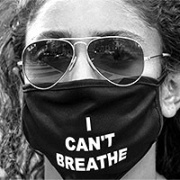
THE MEANINGS OF MASKS
A collective cry for justice | Graham M. Jones
Anthropology
"The mask is one of the most important human artifacts in all of anthropology. It is a tool of transformation that allows its wearers to transcend themselves, taking on timeless roles in ritual dramas, and as actors in a broader social drama."

DAILY LIFE
An ode to the humble balcony
In The New York Times, Bernardo Zacka writes: "[A balcony] is private, yet public; exposed, yet secluded. It offers company without the demands of intimacy, and we should never take it for granted again."
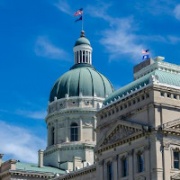
RESEARCH
J-PAL North America | Covid19 Evidence Portal
The new Covid19 Evidence Portal synthesizes rigorous research across health, education, and the social safety net to provide recommendations to state and local leaders responding to the COVID-19 pandemic.
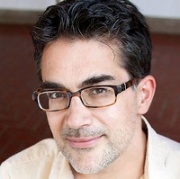
DAILY LIFE
What the pandemic tells us about personal identity
Kieran Setiya writes in The New Statesman: "We have become more used to seeing others through screens and software, but we are embodied beings and digital communication can feel lacking. What effect will this have on us?"
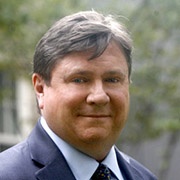
CIVIC PERSPECTIVES
Will the Covid-19 pandemic change national security strategy?
At MIT’s Starr Forum, experts consider if the coronavirus crisis will catalyze savvier 21st C. security strategies: e.g., to include health care, aid for workers and communities, protection for democracy, and increased international collaboration to manage novel pathogens.
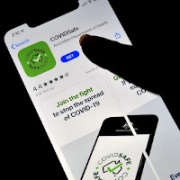
CIVIC PERSPECTIVES
The tension between privacy and coronavirus contact-tracing
KSJ Fellow Anil Ananthaswamy writes in The Boston Globe that "We have to ensure that contact-tracing methods that compromise our privacy don’t become the norm."
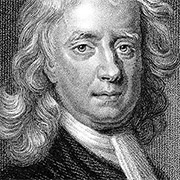
DAILY LIFE
The truth about Isaac Newton’s productive plague
In The New Yorker, MIT Professor of Science Writing Tom Levenson writes that the idea that the plague woke the brilliance in Newton is both wrong and misleading.

ELECTION 2020
3Q with political scientist Adam Berinsky
Impact of the pandemic on U.S. political life
"As they do in wartime "people are willing to give the government broader latitude, even to curtail civil liberties, to address this pandemic crisis. But this effect is also short-lived. People are willing to give up some civil liberties for months, but not years."
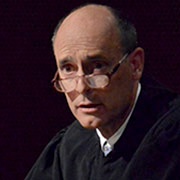
CIVIC PERSPECTIVES | HEALTHCARE
It’s high time we fought this virus the American way
The administration has all the authority it needs to produce medical supplies and prepare for a potential vaccine, argues James E Baker in a recent New York Times opinion piece.
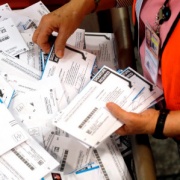
ELECTION 2020 | VOTE BY MAIL
6 April 2020
More voting by mail would make the 2020 election safer for our health, but can it be ready in time?
Writing in The Washington Post, MIT election expert Charles Stewart III writes why it’s not clear whether “at-home voting” can be ramped up nationwide by November.
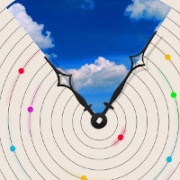
DAILY LIFE
The virus is a reminder of something lost long ago
In The Atlantic, MIT Professor of Writing Alan Lightman observes that the pandemic may force "many of us to slow down, to spend more time in reflection, away from the noise and heave of the world. With more quiet time, we have an opportunity to think about who we are, as individuals and as a society."
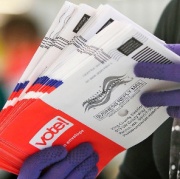
ELECTION 2020 | VOTING BY MAIL
2 April 2020
Voting by mail is the hot new idea. Is there time to make it work?
In The New York Times, MIT Professor and electoral expert Charles Stewart III discusses how the U.S. states are searching, rapidly, for ways to protect democracy’s most sacred institution.
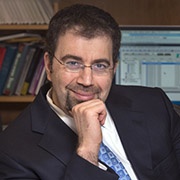
CIVIC PERSPECTIVES | DEMOCRACY
The Coronavirus exposed America’s authoritarian turn
In Foreign Affairs, MIT economist and Institute Professor Daron Acemoglu comments on the slow, inadequate U.S. federal response to the coronavirus threat, noting that independent expertise always dies first when democracy recedes.

CIVIC PERSPECTIVES | OPINION
The virtuous life of MIT Professor John G. Trump
In an opinion piece at The Washington Post, MIT media scholar Heather Hendershot delves into the life of President Trump's erudite and charitable uncle, Dr. John Trump '33, who taught at MIT for 40 years.
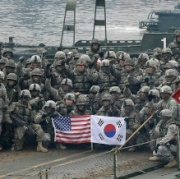
CIVIC PERSPECTIVES + ECONOMIC IMPACTS
How coronavirus will affect the US military
Yes, modern armies rely on equipment and training — and a healthy fighting force. Rachel Tecott and Erik Sand, MIT Political Science PhD candidates, comment on US military readiness in The Washington Post.

CIVIC PERSPECTIVES
The attempt to rebrand the coronavirus
In The Atlantic, Author and Professor of Science Writing Tom Levenson writes that the non-scientific term "Wuhan virus" was intended to label Covid-19 as a Chinese scourge — ignoring, and stirring up, an ugly history.
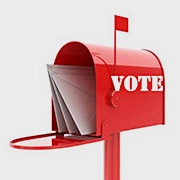
ELECTION 2020
27 March 2020
Election officials scrambling to meet pandemic voting challenges
In National Memo, MIT Professor of Political Science Charles Stewart III, analyzes the scramble for voting materials, machinery, and manpower — all the behind-the-scenes actions following the seemingly simple decisions by 10 states and territories to postpone primaries until June.